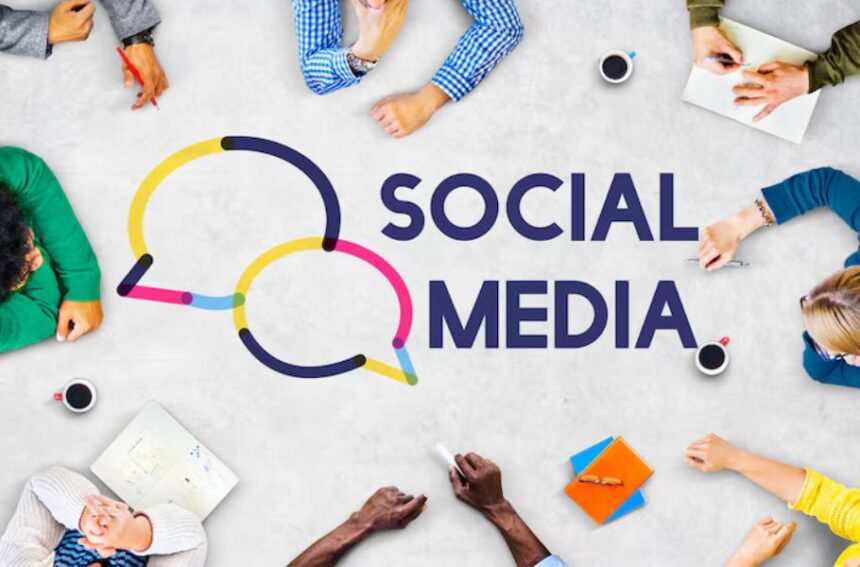In today’s digital age, social media has evolved into something much larger than just a platform for sharing photos or chatting with friends. It has become a powerful tool for connecting people, shaping opinions, and creating communities. From fleeting moments to thought-provoking discussions, social media offers a space for everyone to share their voice, ideas, and experiences. However, with this growth comes a deeper conversation: how should we use social media responsibly? The great social media discussion isn’t just about the content we post, but also about the way we engage with others. It’s a space that can unite, but also divide, depending on how we approach it.
The Power of Connection
One of the most profound aspects of social media is its ability to connect people across vast distances. A simple tweet, post, or video can go viral and unite individuals with shared passions, struggles, and dreams. Social media platforms have allowed us to find like-minded people who we might never have met otherwise. It’s a chance to expand our understanding of different cultures, perspectives, and lifestyles in ways that were unimaginable just a few decades ago.For example, social media campaigns such as #BlackLivesMatter or #MeToo have sparked movements that echo through every corner of the globe. These discussions have not only raised awareness about critical social issues but also empowered individuals to share their stories and demand change. Social media has become a space for marginalized voices to be heard, allowing people to speak up when they might not otherwise have had the opportunity.
The Double-Edged Sword: Benefits and Challenges
While social media’s power to connect is undeniable, it comes with its own set of challenges. One of the most significant concerns is the spread of misinformation. With the sheer volume of content being shared, not everything we read online is accurate or trustworthy. This can create confusion, fear, and division, especially when people believe or spread false information without considering its source. Additionally, the pressure to perform on social media can be overwhelming. Many individuals, particularly younger users, feel a constant need to compare themselves to others. This can lead to feelings of inadequacy or anxiety, especially when social media often shows only the highlights of people’s lives beautiful photos, accomplishments, or glamorous moments without the behind-the-scenes struggles.
The Art of Meaningful Interaction
Despite its challenges, social media can be a beautiful place when used thoughtfully. The key to contributing to the great social media discussion is being mindful of how we engage with others. Instead of mindlessly scrolling or leaving hurtful comments, we can take a moment to pause and reflect on the impact our words may have. In this space, kindness is not just a virtue, but a practice. Whether we’re sharing an opinion, offering support, or simply liking someone’s post, it’s important to remember that behind each profile is a human being with their own struggles, hopes, and dreams. Just as we appreciate positive interactions, we should be conscious of how we respond to differing views. Constructive conversations can happen even in disagreements, but it requires patience, empathy, and respect.
A Global Conversation
Social media is much more than a collection of posts or pictures. It’s a living, breathing conversation that evolves every second. Whether we are discussing the latest news, sharing our personal achievements, or simply connecting with friends, we are participating in an ongoing, global dialogue. Every post adds to this collective experience, shaping the future of communication and connection. As we continue to engage with social media, we must remember that it’s not just about what we contribute, but how we contribute. The great social media discussion is one that asks us to listen, learn, and, above all, be kind.
FAQs
- How can social media be used responsibly?
Social media can be used responsibly by being mindful of what you post, ensuring that information is accurate, and being respectful when interacting with others. It’s essential to think before you share and to engage in meaningful discussions that add value to the community. - What are the negative impacts of social media?
Some of the negative impacts of social media include the spread of misinformation, the pressure to maintain a certain image, cyber bullying, and the risk of addiction. It can also contribute to mental health issues such as anxiety and depression, especially when users compare themselves to idealized versions of others. - How can we combat misinformation on social media?
Combating misinformation involves double-checking facts, relying on trusted sources, and encouraging others to do the same. It’s crucial to think critically before believing or sharing information, and to report content that is misleading or false. - Why do people feel pressured on social media?
Many people feel pressured on social media because they perceive others as living perfect lives. Social media often highlights the best moments, leaving out struggles and failures. This creates an unrealistic standard that leads to comparison and feelings of inadequacy. - Can social media be a force for good?
Yes, social media can be a powerful force for good when used to spread awareness, support causes, connect people in meaningful ways, and share valuable information. Platforms like Twitter, Facebook, and Instagram have been used to organize movements, provide education, and offer emotional support.
Conclusion
Social media is much more than a collection of posts or pictures. It’s a living, breathing conversation that evolves every second. Whether we are discussing the latest news, sharing our personal achievements, or simply connecting with friends, we are participating in an ongoing, global dialogue. Every post adds to this collective experience, shaping the future of communication and connection. As we continue to engage with social media, we must remember that it’s not just about what we contribute, but how we contribute. The great social media discussion is one that asks us to listen, learn, and, above all, be kind.






